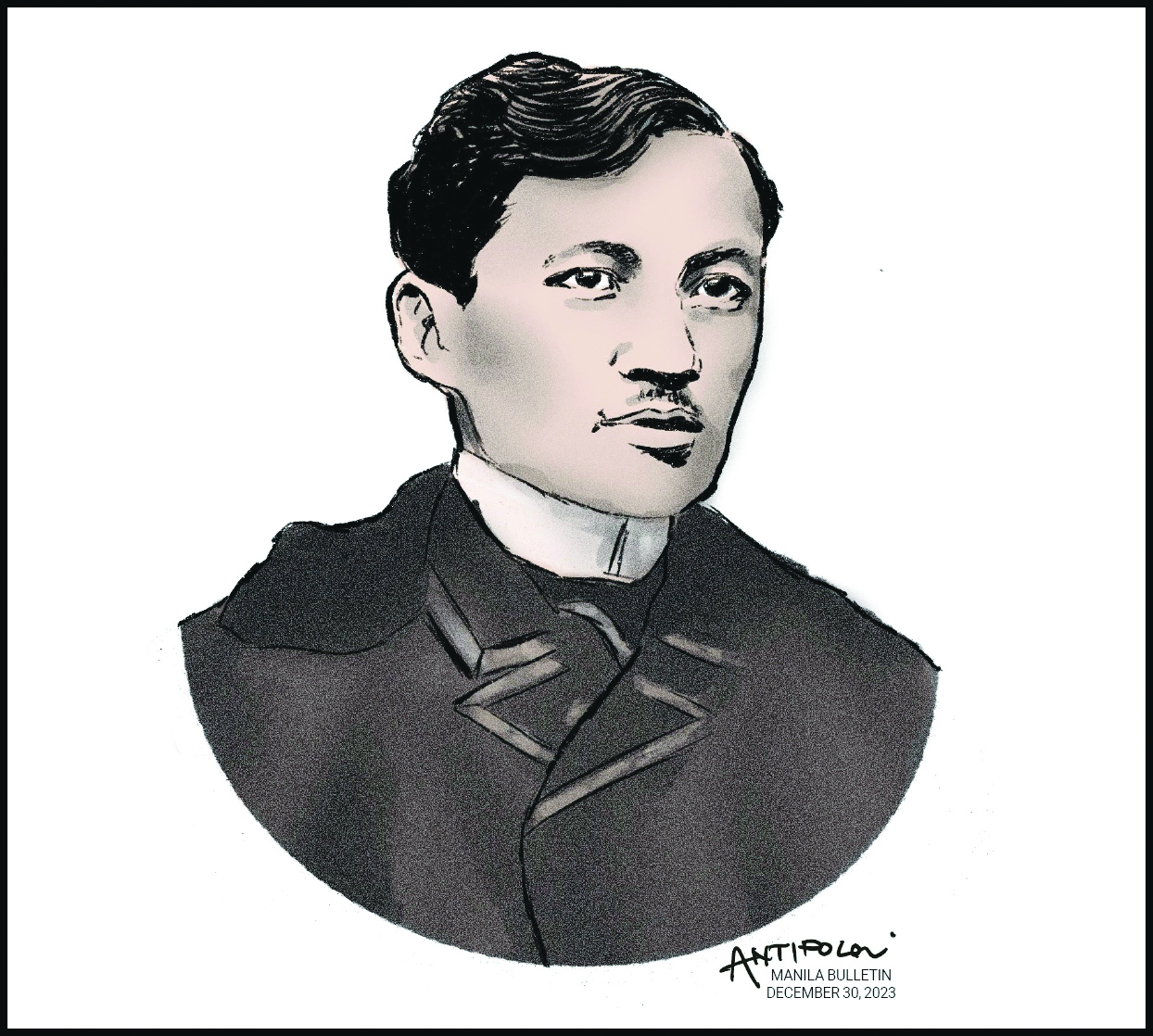
Today, we commemorate the 127th anniversary of the martyrdom of Jose Rizal with the annual ceremonies held at the Rizal National Monument in Manila. Only a few steps from the monument is the site where Rizal was executed by Spanish soldiers in 1896, where, blindfolded, he turned to face his executioners at the moment that the guns were fired.
Generations after Rizal, it is not that posture of courage in an execution that remains in the minds of Filipinos. In casual conversations with colleagues and strangers, Rizal’s memory is enshrined as a hero who had sparked the ideals of nationalism through his writings, and his belief in the power of the youth.
“The pen is mightier than the sword” comes to everyone’s mind when talk of Rizal starts and his two great works – Noli Me Tangere and El Filibusterismo – are easily recalled. That phrase was penned by Edward Bulwer-Lytton, an English author, in 1839, in his play where a character “who understands the power of written words to influence, persuade and change the course of history,” says the line. It is a saying that always comes to mind when the names of many great men who demonstrated its power are said, among them our Jose Rizal.
In Noli me Tangere (Touch Me Not), a required reading in high school and college, published in 1887, Rizal exposed the sufferings of the people under Spain’s colonial rule, focusing on the role of the friars. Until today, many of its main characters —Crisóstomo Ibarra, María Clara, Padre Dámaso, Sisa, Crispín, and Basilio – are still remembered for the symbolisms that speak of the ills of Philippine society under Spanish rule and the people’s heroic virtues.
It was such a powerful novel that Rizal’s return to the Philippines in 1887 was cut short because he was pursued by the police. He went back to Europe where he completed his second novel, El Filibusterismo, which he started writing in Calamba, Laguna in 1887. It was published in 1891 in Belguim.
Rizal’s writings have also inspired the youth and is still vividly in the minds of Filipinos today. In his poem, To the Filipino Youth, Rizal recognized the role of the youth in nation-building. He is best remembered for the phrase – “The youth is the hope of the motherland.” In his poem written in Spanish, dedicated to the Filipino youth, he described them as “the fair hope of my motherland.”
The youth and the written word are in powerful positions these days. Technology has given the youth the power of social media, where we have seen how any piece of writing – or graphics, photo, video – can bring people together or drive them apart through information or disinformation.
In the hands of inspired, responsible and nationalistic minds, the power of the pen could spark another revolution that can strengthen society and economic development. That can start with truthful information that can guide people’s energies to build better communities. Social media has shown how potent it is as a platform for disseminating information, and most especially, for initiating change. And the youth are more masterful in the use of that technology.
Is Rizal’s life inspiring the next generation of heroes, the youth who are the “fair hope of the motherland?” The youth have to power to make that happen.